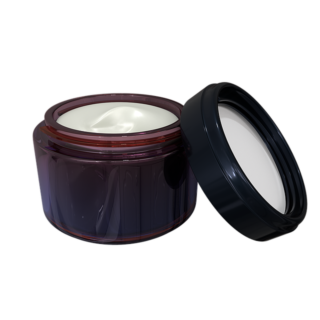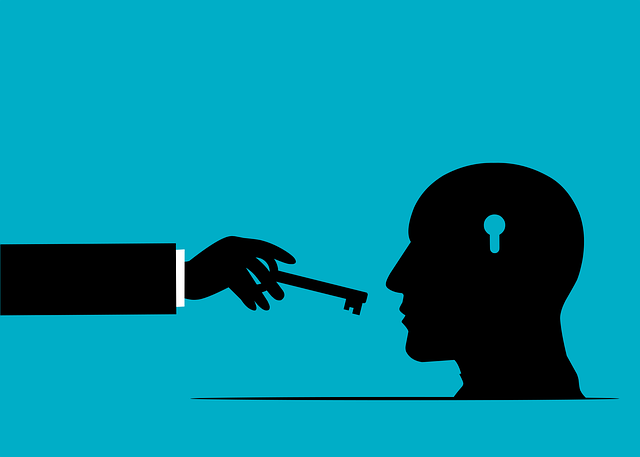Multiple sclerosis is a debilitating neurological disorder that can often leave patients feeling hopeless and alone. But there is hope! In this blog post, we will explore nine natural treatments for multiple sclerosis that have helped my Toronto patients alleviate some of the symptoms associated with the disease.
1. Acupuncture
Acupuncture is a traditional Chinese medicine technique that involves inserting thin needles into the skin at specific points on the body. It is believed that this helps to clear energy blockages and promote balance and healing within the body. There is some evidence to suggest that acupuncture may be effective in treating symptoms of multiple sclerosis, such as fatigue, pain, spasticity, and bladder problems.
2. Herbal Medicine
There are many different herbs that have been traditionally used to treat various ailments, including multiple sclerosis. Some of the most common herbs used for MS include ginger, ginkgo biloba, turmeric, milk thistle, lions mane and green tea. These herbs can be taken in pill form or brewed into a tea. It is important to talk to a Naturopathic Doctor or qualified herbal practitioner before starting any herbal treatment regimen, as some herbs can interact with medications you may be taking for your MS.
3. Dietary Changes
Making some simple dietary changes can also help improve symptoms of MS. One study showed that following a Mediterranean diet—which includes lots of fresh fruits and vegetables, whole grains, fish, and olive oil—may help reduce inflammation and slow the progression of MS. Other helpful dietary changes include avoiding processed foods and food allergies, getting enough vitamin D, and drinking plenty of water.
Food sensitivity testing can help to identify gluten sensitivity and other food sensitivities in people with MS and other autoimmune diseases. The most common type of food sensitivity test is an Elimination Diet, in which potential triggering foods are eliminated from the diet for a period of time and then reintroduced one at a time to see if symptoms occur. However, Elimination Diets can be difficult to stick to and can take months or even years to complete. Another option is an IgG Food Sensitivity Test, which measures levels of immunoglobulin G (IgG) antibodies in the blood.
Antibodies are produced by the immune system in response to perceived threats, such as bacteria or viruses. However, in people with food sensitivities, the immune system overreacts to harmless proteins found in certain foods, producing excessive amounts of IgG antibodies. IgG Food Sensitivity Tests can be helpful in identifying food sensitivities because they can measure levels of IgG antibodies specific to each individual food protein. This allows for a more targeted Elimination Diet and can speed up the diagnosis process. If you think you might have a food sensitivity, you can book an appointment for testing.
4. Exercise
Exercise is important for everyone, but it is especially crucial for those with MS. Regular physical activity can help reduce fatigue, improve mobility and coordination, ease depression and anxiety, promote better sleep, and boost overall fitness and well-being. Even if you are not able to do strenuous exercise due to your symptoms, there are still many low-impact activities you can do to get moving and feeling better.
5. Stress Reduction Techniques
Stress is a well-known trigger for multiple sclerosis (MS) flare-ups. Managing stress is therefore an important part of MS treatment. Stress management techniques such as relaxation therapy and yoga can be helpful, but some patients may also benefit from taking adaptogens. Adaptogens are a class of natural substances that help the body to adapt to stress by reducing the production of stress hormones. They have been used for centuries in traditional Chinese and Indian medicine, and are now gaining popularity as a natural treatment for stress and anxiety. Some common adaptogens include ashwagandha, holy basil, and ginseng. If you are interested in trying adaptogens, talk to your Naturopathic doctor first to discuss whether they are right for you.
6. Vitamin D
Vitamin D is an important nutrient that helps the body absorb calcium. It’s found naturally in very few foods, so most people get it from exposure to sunlight. Vitamin D is also available in supplement form. Some studies suggest that vitamin D may play a role in helping to prevent or treat MS. If you think you might be deficient in vitamin D, book an appointment with us for vitamin D testing or talk to your doctor.
Sometimes supplementation is ineffective or can take too long to bring up severely deficient vitamin D levels. I offer these patients the option of a high potency vitamin D injection that will bring levels up very quickly.
7. Mitochondrial Support
Mitochondrial support using resveratrol, alpha lipoic acid, coenzyme Q10 and NAD boosters is a promising new treatment for patients with multiple sclerosis. Mitochondria are the powerhouses of the cell, and they are responsible for producing energy. In patients with multiple sclerosis, the mitochondria are not working properly, and this can lead to fatigue and other symptoms. Resveratrol, alpha lipoic acid, coenzyme Q10 and NAD boosters help to support the mitochondria and improve their function. In a small study of patients with multiple sclerosis, those who received mitochondrial support had less fatigue and improved quality of life.
8. Hormones
Hormones play an important role in the human body, regulating everything from metabolism and mood to reproduction and energy levels. When hormones are out of balance, it can lead to a host of problems. For patients with multiple sclerosis (MS), hormone imbalances can cause fatigue, weight gain, depression, and loss of libido. Hormone testing can help to identify imbalances and allow for tailored treatment plans that use bio identical hormone replacement therapy to restore balance. By addressing hormone imbalances, patients with MS can improve their quality of life and potentially reduce their risk of disease progression.
9. Cannabinoids
Recently, cannabinoids have emerged as a potential therapy for MS. Cannabinoids are compounds found in the cannabis plant, and they have been shown to have anti-inflammatory and neuroprotective effects. In animal studies, cannabinoids have been shown to reduce inflammation and nerve damage in models of MS. In small clinical trials, cannabinoids have been shown to improve symptom control in patients with MS. These promising results have led to the development of several cannabinoid-based medications for MS. Dr. Shawn Meirovici N.D. is experienced cannabis educator in Toronto, Ontario. Dr. Shawn can help patients decide if cannabis therapy would be a good addition to their treatment plan.
Conclusion:
If you are living with multiple sclerosis (MS), know that you are not alone—there are millions of other people around the world dealing with this disease every day. And while there is no cure for MS at this time, there are many different treatments that can help alleviate some of the symptoms associated with the disease. In this blog post, we explored nine natural treatments for MS—acupuncture , herbal medicine , dietary changes , exercise , stress reduction techniques, vitamin D, mitochondrial support, hormone balancing and cannabinoid therapy. Make an appointment with us or talk to your doctor about which treatments might be right for you.
Are you feeling tired, moody, and bloated? You might be experiencing the symptoms of hormone imbalance. This is a common problem for women, especially mothers. But don’t worry, there are natural treatments that can help restore your hormones to balance. In this blog post, we will discuss what hormone imbalance is, its symptoms, and how to treat it naturally. Keep reading to learn more!
Estrogen Dominance
Estrogen dominance is a condition that can occur when there is an imbalance of estrogen and progesterone in the body. When estrogen levels are too high relative to progesterone levels, it can lead to a number of symptoms, including mood swings, bloating, fatigue, and irregular menstruation.
Estrogen dominance can be caused by a variety of factors, including stress, diet, and certain medications. If you are experiencing any of these symptoms, we can help to properly diagnose and treat the condition. Estrogen dominance is a common hormonal imbalance that affects many women, but with proper treatment, it can be effectively managed.
BHRT
Bioidentical hormone replacement therapy is a treatment for estrogen dominance that involves using hormones that are identical to the ones produced by the body. This type of therapy can be used to treat a variety of symptoms associated with estrogen dominance, such as hot flashes, night sweats, mood swings, and weight gain. Bioidentical hormone replacement therapy can also help to protect against osteoporosis and heart disease.
While traditional hormone replacement therapy uses synthetic hormones that are not identical to those produced by the body, bioidentical hormone replacement therapy uses hormones that are exact replicas of the ones naturally produced by the body. This makes bioidentical hormone replacement therapy a more natural and effective treatment for estrogen dominance.
PCOS
Polycystic ovary syndrome (PCOS) is a hormonal disorder that affects women of reproductive age. The four main features of PCOS are insulin resistance, high levels of testosterone, low levels of follicle-stimulating hormone (FSH), and high levels of luteinizing hormone (LH). Insulin resistance is the most common cause of PCOS, and it occurs when the body doesn’t use insulin effectively. This leads to higher than normal levels of Insulin in the body. High Insulin levels increase testosterone production, which can interfere with the development of follicles on the ovaries. As a result, ovulation may be irregular or may not occur at all.
FSH is responsible for stimulating the growth of follicles on the ovaries, and LH is responsible for triggering ovulation. When FSH and LH are out of balance, it can lead to PCOS.
Cortisol is a stress hormone that can also contribute to PCOS. It does this by increasing Insulin Levels and affecting how the body uses glucose. As a result, women with PCOS often have higher than normal levels of Cortisol in their bodies.
PCOS can cause a variety of symptoms, including weight gain, irregular menstruation, fertility problems, low sex drive, and mood swings. PCOS can also cause acne and excess hair growth. While there is no cure for PCOS, there are treatments that can help manage the symptoms.
PCOS is thought to be caused by a combination of genetic and environmental factors. A woman’s risk of developing PCOS increases if she has a family history of the condition. PCOS is also more common in women who are overweight or obese. If you think you may have PCOS, talk to your doctor about your symptoms.
Diet and exercise are two of the most important factors in managing PCOS. Both help to regulate hormone levels and improve insulin sensitivity. One of the best ways to get started is to eat a nutritious diet and to get at least 30 minutes of exercise every day.
Additionally, supplements like l-carnitine, inositol, and vitamin D can be helpful in managing PCOS symptoms. L-carnitine helps to boost energy levels and improve fertility, while inositol helps to regulate hormones and reduce inflammation.
Vitamin D is essential for fertility and has also been shown to improve insulin sensitivity. All of these nutrients are available in food sources or supplements. By making dietary and lifestyle changes, you can help to manage your PCOS symptoms naturally.
Chronic Stress
Estrogen, testosterone, and other hormones play a vital role in the human body. They are involved in regulating mood, energy levels, metabolism, and sexual function. However, these hormones can be easily disrupted by stress.
When the body is under stress, it releases a hormone called cortisol. cortisol helps the body to deal with short-term stressors by increasing heart rate and blood pressure. However, if cortisol levels remain high for long periods of time, it can interfere with the production of other hormones, including estrogen and testosterone. This can lead to a number of problems, such as fatigue, weight gain, and difficulty concentrating.
Additionally, stress can also disrupt the delicate balance of progesterone and estrogen, which can lead to irregular periods and hot flashes in women. Therefore, it is important to manage stress in order to maintain hormone balance.
Diet, exercise, meditation, sleep and adaptogens are all effective ways to manage stress naturally. Diet can help by reducing inflammation and providing the nutrients needed for the body to function optimally. Exercise releases endorphins, which have mood-boosting effects, and also helps to reduce levels of the stress hormone cortisol.
Meditation helps to focus and calm the mind, and research has shown that it can be as effective as medication for treating anxiety and depression. Sleep is essential for rest and recovery, and 7-8 hours per night is recommended for most adults.
Adaptogens are a unique class of herbs that help the body to adapt to stressors by modulating the stress response. When used regularly, they can help to prevent burnout and promote resilience. Managing stress naturally requires a holistic approach, but incorporating these simple strategies into your daily routine can make a big impact.
If you’re experiencing any of the symptoms we’ve talked about, it might be time to see a naturopathic doctor. NDs are experts in hormonal balance and have many natural and effective treatments at their disposal. Don’t suffer in silence – book a consultation today and start feeling like yourself again.
The mind body connection
The mind and body are closely connected through thousands of chemical messengers. When we have a mental experience the brain sets off a cascade of neurotransmitters and hormones that affects our body. For instance when we experience joy, our body produces the hormone oxytocin. Oxytocin reduces blood pressure, stress hormone, anxiety and promotes growth and healing. Conversely, when we experience an emotion like sadness this can raise stress hormone, increasing blood pressure and eliciting negative effects on the immune system. Psychotherapy can therefore have a big impact on the health of our body by modifying mental outlook and thus inducing positive chemical messengers to the rest our body. An example is cognitive behavioural therapy, which has well documented success in the treatment of depression, anxiety and stress. https://pubmed.ncbi.nlm.nih.gov/ 31004323/
We can also treat conditions of the mind through our body. In pharmaceutical medicine, drugs like anti-depressants can block the breakdown of the neurotransmitter serotonin. Serotonin is involved in mood and therefore in some individuals boosting serotonin activity can improve mood and decrease anxiety. However, some short falls of pharmaceutical medicine is that it can often cause unwanted side effects and have a narrow therapeutic range; meaning that too little may have no effect and too much can be deadly. There are also issues with dependancy and addiction.
On the other hand nutritional and herbal supplementation can be an effective treatment for depression, stress and anxiety without the same safety concerns as drugs.
Supplementation for depression
Depression is both a physical and emotional condition. We know that depression can impact the reproductive system, immune system and our nervous system. Nutritional deficiencies can arise as a result of long standing depression and can be a precursor in the development of a depressive condition. Deficiencies in vitamin B12, vitamin D and protein are associated with depression. https://pubmed.ncbi.nlm.nih.gov/ 23377209/ In my Toronto clinic we can identify and correct nutritional deficiencies and make a big impact on depressive symptoms.
There is also a lot to be said about the impact of chronic inflammation on brain and mental health. Research has shown that chronic inflammation can increase susceptibility to depression. https:// pubmed.ncbi.nlm.nih.gov/32553197/ At the Toronto clinic we treat inflammation using supplements such as curcumin, omega-3 fatty acids and cannabidiol (CBD). These supplements can improve depressive symptoms through modulation of inflammation.
Furthermore many natural health products like CBD can also impact neurotransmitters (brain messenger chemicals) directly associated with depression. Through the interaction of cannabinoid receptors, 5-HT1A (involved in serotonin regulation) and neurogenesis factors CBD can act similarly to an anti-depressant medication but with less potential for adverse effects. At the Toronto clinic I offer cannabis education and counselling when cannabinoids would benefit a patients condition.
Supplementation for Anxiety
Anxiety disorders are the most common mental illness in the United States effecting close to 20% of the population every year. While genetics play a significant role in the development of an anxiety disorder, biological and environmental factors are pivotal as well. We know that there are often disruptions in serotonin and dopamine, cortisol and adrenaline in anxiety syndromes. A common class of drugs used in the treatment of anxiety are the benzodiazepines (Xanax, Valium, Ativan etc…). Although these medications can be very effective, they often have significant side effects (drowsiness, depression, constipation). Benzodiazepines can also be difficult to stop once started. One of the most significant mechanisms in which anti-anxiety medications work is through the GABA receptor system.
GABA is an inhibitory neurotransmitter, meaning that it helps to calm the nervous system and muscular skeletal system. Benzodiazepines have a very strong effect on GABA receptors making them effective but also potentially dangerous.
Many nutraceutical compounds activate the GABA pathway but with a gentler effect than benzodiazepines. Pharma GABA (GABA produced by bacteria), Passionflower, St. Johns Wort, Taurine, 5-HTP and CBD all have well documented effects on GABA and Serotonin. At the Toronto clinic we use these compounds successfully in the treatment of anxiety syndromes with less potential for adverse effects.https://pubmed.ncbi.nlm.nih.gov/ 11679026/
Supplementation for Stress
Every single human being experiences stress throughout their life. Stress can be a healthy natural process in the right circumstances and at the right time. Stress becomes pathological when it is experienced chronically and without appropriate instigation. Long lasting stress can have detrimental effects on multiple biological systems including the immune system, endocrine system (hormones) and cardiovascular system. https:// www.ncbi.nlm.nih.gov/pmc/articles/PMC5137920/
There are no specific pharmaceutical interventions in the treatment of stress. Benzodiazepines are the most common class of drug prescribed for debilitating stress and as I mentioned in the section on anxiety, benzodiazepines can have significant side effects and issues with dependency.
Since there is a wide spectrum of factors that can cause stress a “one size fits all” approach is not always effective. The naturopathic approach is fundamentally holistic and therefore takes into account mental, emotional and physical stressors. For instance a change in work schedule may be contributing to sleep disruption, leading to insomnia, poor work performance and nutritional disruption.
Furthermore, there is an entire class of nutritional and herbal supplements called adaptogens. Adaptogens have the ability to modulate cortisol (stress hormone) preventing peaks and dips in cortisol levels throughout the day. Overtime treatment with adaptogens facilitate a more balanced cortisol output avoiding periods of hyperactivity and burnout. To my knowledge there are no pharmaceutical drugs that act in a similar way. Some common adaptogens are: Ashwagandha, Rodiola and Siberian Ginseng. Vitamins like Vitamin C and Magnesium can help support adrenal function further helping the body to avoid burnout in periods of prolonged stress. At the Toronto clinic I use these adaptogenic compounds in conjunction with other treatments to provide a safe and effective treatment plan for chronic stress.
The mind can be treated through the body. Pharmaceutical interventions can be effective but often come with safety concerns around adverse effects and dependancy. There are many safe and effective natural approaches to mental health conditions through supplementation. At my Toronto clinic we specialize in developing an individualized plan to help achieve your mental health goals.
Intro
Let’s take a look at 5 of the most common chronic issues that we experience as a a result of modern living: Stress, Insomnia, Anxiety, Depression and Pain. While there are some pharmaceutical medications that can be effective, most individuals would rather seek a safe and effective alternative approach. Here I will outline these conditions individually and describe some of the most effective treatments that I use at my Toronto naturopathic clinic Physic-Logic.
Stress
Stress is an unavoidable biological response to a threat. The human body developed the stress response in order to escape immediately threatening situations like wild animals and hunting for food. The stress response evolutionarily developed to kick the body into high gear in particular situations and for relatively short intervals. Stress demands a lot from our body in order to perform at a very high level. An increased output of hormones, vitamins and minerals are utilized during the stress response.
The reality is that in modern day living we perceive stress from a variety of situations that are outside of our evolutionary makeup. For example, many if not all of us experience financial stress, workplace stress, relationship stress, medical related stress etc… If we do not have effective coping strategies these stressors, overtime, use up our bodies resources and lead to burnout.
Chronic stress can also be a trigger in the development and resurgence of chronic illnesses like autoimmune disease, allergies, gastrointestinal disease, migraine and skin conditions. At our Toronto Naturopathic Clinic we have several therapies that help to support the body through stress. Adaptogenic herbs like Rhodiola and Ashwagandha help to balance cortisol levels, evening out the highs and lows of a stress response. Magnesium, b-vitamins and vitamin C help to support the adrenal glands which can experience a state of fatigue when under prolonged stress. Acupuncture can help to bring the body into a calming parasympathetic state after prolonged periods in sympathetic fight and flight mode. All these holistic modalities work together to bring a patient out of stress induced fatigue while allowing a better more controlled stress response in the future.
Insomnia
One of the most important foundations for health is good sleep. Most adults require 8-10 hours of sleep for optimal performance whereas in reality 5-7 hours seems to be the norm for most many patients. Not only is sleep duration important but quality uninterrupted sleep is important as well. Our body will have trouble healing and functioning optimally without adequate sleep quantity and quality.
There are 3 types of insomnia that I typically see in my Toronto Naturopathic practice: 1. Sleep initiation insomnia (trouble falling asleep) 2. Sleep maintenance insomnia (trouble staying asleep) and 3. A combination of both initiation and maintenance insomnia. Some of the most common issues causing insomnia are due to anxiety, stress, pain and discomfort. Therefore a successful approach to treating insomnia needs to take into consideration the root causes of the insomnia and the type of insomnia.
Many of the pharmaceutical approaches to insomnia have issues with dependency, addiction and grogginess. The pharmaceutical treatments don’t typically consider the issues causing the insomnia or the type of insomnia either. At my Toronto Naturopathic clinic Physio-Logic I use a combination of time tested approaches to pinpoint the specific areas of sleep that have been disrupted. For instance melatonin can be a very effective treatment for insomnia but many patients don’t realize that there is more than one type of melatonin and that dosage is very important. A fast acting sublingual melatonin may be very helpful to initiate sleep but not effective at maintaining sleep throughout the night; whereas a prolonged release melatonin is often much more effective for sleep maintenance issues. Similarly Cannabis and cannabinoids can be used for insomnia but fast acting inhaled forms are better suited for sleep initiation whereas longer acting oral forms are more useful for sleep maintenance. At our Toronto Naturopathic clinic we take into consideration all the nuances in the diagnosis of insomnia to come up with the most effective and safest course of treatment.
Anxiety
Most of us have experienced anxiety at one point or another and like stress, anxiety in specific circumstances and in relatively short durations is perfectly normal. When anxiety becomes a daily or long lasting biological response we simply cannot function optimally and start placing our body at risk of chronic disease.
Stress and anxiety are closely related with anxiety being more of the mental emotional response and stress being more of the physical response to a perceived threat. A big issue with chronic anxiety is that it becomes a vicious cycle perpetuating itself; the experience of anxiety creates more anxiety and the fear of its return creates more anxiety. The brain, much like muscle has a memory and the more times specific pathways are engaged the harder it becomes to break those physiological habits.
Anti-anxiety medications often fail at producing long lasting results without side effects because they where often designed for treating other conditions; as is the case with anti-depressant medications. A recent breakthrough in anxiety medicine has revealed that our endocannabinoid system has a significant role in the maintenance of balanced mental emotional health. Therefore compounds like cannabidiol (CBD) which act to support the endocannabinoid system have been shown to be effective and safe in the treatment of anxiety with minimal side effects.
Promotion of a healthy lifestyle including daily exercise and a healthy diet can further support the endocannabinoid system and are therefore extremely effective strategies in their own rite. At my Toronto Naturopathic Clinic Physio-Logic we combine several strategies including cannabinoid education to formulate an effective strategy to break the anxiety cycle once and for all.
Depression
Depression is a spectrum ranging from mild symptoms to severe symptoms. While pharmaceutical medication is often necessary for more severe forms of depression, functional medicine can be very effective in treating mild to moderate depression.
Most anti-depressant medications work by keeping higher levels of serotonin in the brain and nervous system. There are many natural compounds that can achieve similar results with a less specific but more holistic mode of action. The net effect is something that is gentler than a pharmaceutical drug but with less potential for dependency and side effects. One example is the flower St. Johns Wort which s backed by several studies confirming its efficacy in treating mild to moderate forms of depression.
Nutrition and exercise are also fundamental in treating all forms of depression and unfortunately as symptoms get worse so do the potential for lassitude and malnourishment. Intervention at the early stages of depression can often allow the patient to utilize holistic therapies effectively and prevent the need for a more aggressive pharmaceutical approach. At my Toronto Naturopathic Clinic, we use functional and holistic medicines from both eastern western medical traditions to treat mild to moderate depression safely and effectively. Some of these treatments include: herbal therapy, acupuncture, intravenous therapy and lifestyle counselling.
Pain
One of the biggest obstacles to cure is pain. Chronic pain interfere with the activities of daily living, disrupting sleep and making exercise impossible. Chronic pain also places physical stress on the body, over time leading to physical burnout and deficiency. Unfortunately many of the most effective pharmaceutical strategies for pain management are linked to addiction and long term side effects. Gastritis (inflammation of the stomach) is a common condition I see in practice linked to long term use of Non steroidal anti-inflammatory medications like Advil and Naproxen. Fortunately there are many safe and effective treatment options within naturopathic and functional medicine.
Pain is often linked to a few common phenomena: lack of circulation, inflammation, tight muscles and neurological injury. Many holistic treatments such as acupuncture, cupping, moxibustion, laser therapy and massage work to improve circulation and loosen tight muscles. Many vitamin, mineral and herbal therapies are excellent for controlling inflammation. Curcumin is a compound derived from the spice turmeric and has years of scientific research demonstrating its strong anti-inflammatory properties without side effects. Using electric current in conjunction with acupuncture can be a safe and very effective treatment for neurological injury. At the my Toronto Naturopathic clinic we utilize many different tools and strategies to provide a safe, effective and individualize treatment for both acute and chronic pain.
Conclusion
Many of the health concerns that we experience in modern society can be safely and effectively treated with a Naturopathic approach. I would encourage anyone experiencing stress, insomnia, anxiety, depression or pain to have a consultation with a Naturopath or other functional medicine doctor. Unfortunately it is all too common for patients to first step into my office after years of trying to manage symptoms using only a pharmaceutical approach. It is never too late to try a more holistic approach. You will be surprised at how effective these treatments can be.







